Jesus In Sukkot
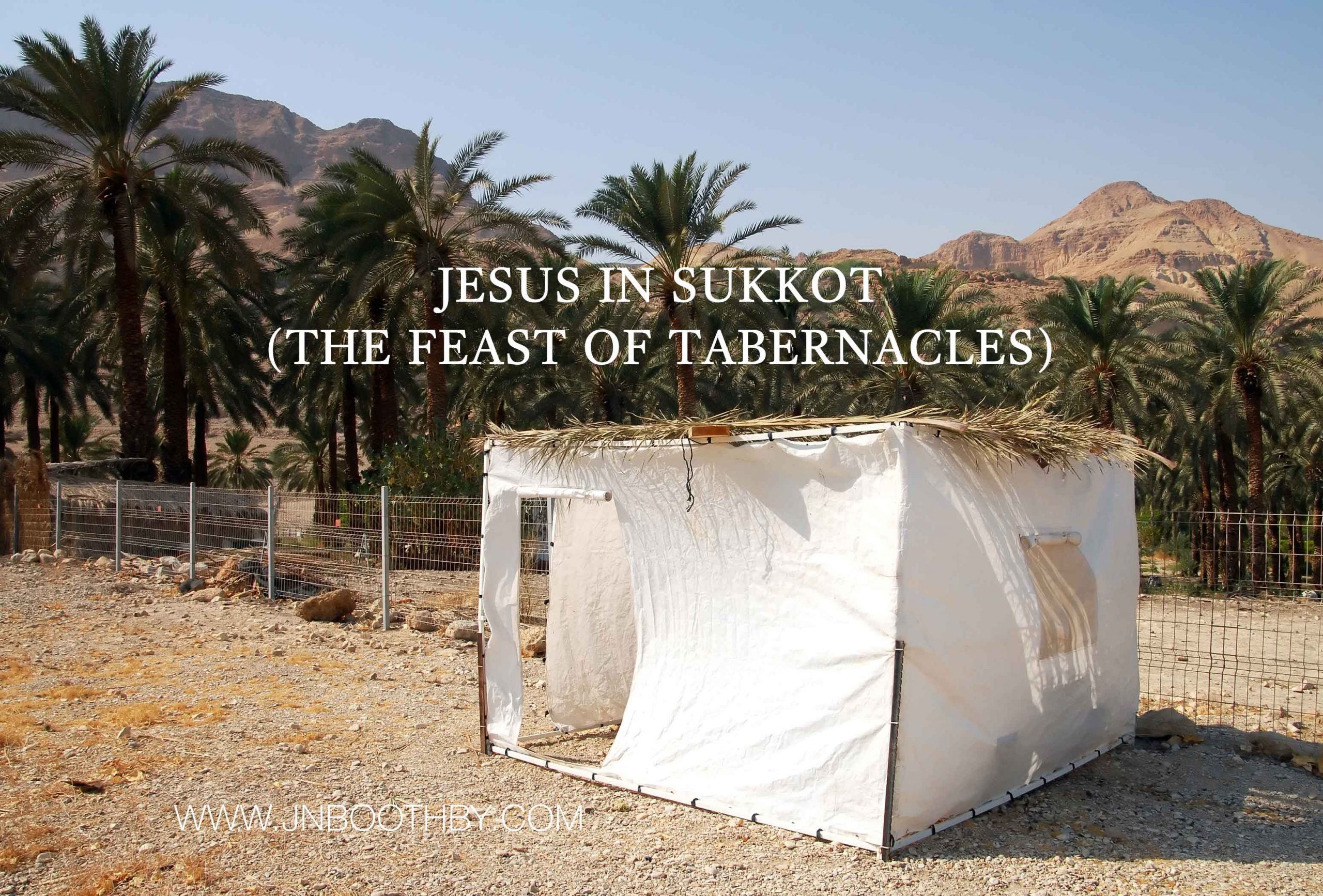
Jesus In Sukkot
There are two seasons in Israel. The summer months are called the “Dry Season” and winter is called the “Rainy Season.” Spring is very short-lived while Fall doesn’t really exist. And right on the very end of the dry season towards the beginning of the New Year and Rainy Season, you have Sukkot or the “Feast of Tabernacles/Booths.” Unlike the somber atmosphere of Yom Kippur, Sukkot is a time to celebrate and pray for God to provide a good rainy season. While many in America dread a rainy season, those in the Middle East pray earnestly for rain. Fresh water is much harder to come by in those regions. This is incredibly important moving forward as we find Jesus in Sukkot and fulfilling this festival.
Sukkot Then
What are the origins of Sukkot and what in the world is it? This is the third of the major Jewish Festivals in the Fall and it comes 5 days after Yom Kippur and lasts for 7 days and has two mandatory sabbaths at the beginning and end. Let’s look at Leviticus 23:33-44:
The LORD said to Moses, “Say to the Israelites: ‘On the fifteenth day of the seventh month the LORD’s Festival of Tabernacles begins, and it lasts for seven days. The first day is a sacred assembly; do no regular work. For seven days present food offerings to the LORD, and on the eighth day hold a sacred assembly and present a food offering to the LORD. It is the closing special assembly; do no regular work.
“ ‘So beginning with the fifteenth day of the seventh month, after you have gathered the crops of the land, celebrate the festival to the LORD for seven days; the first day is a day of sabbath rest, and the eighth day also is a day of sabbath rest. On the first day you are to take branches from luxuriant trees—from palms, willows and other leafy trees—and rejoice before the LORD your God for seven days. Celebrate this as a festival to the LORD for seven days each year. This is to be a lasting ordinance for the generations to come; celebrate it in the seventh month. Live in temporary shelters for seven days: All native-born Israelites are to live in such shelters so your descendants will know that I had the Israelites live in temporary shelters when I brought them out of Egypt. I am the LORD your God.’ ”
So Moses announced to the Israelites the appointed festivals of the LORD.
Sukkot is just one of the commandments that were given to the Israelites during their time in the wilderness. God, however, knew that they would eventually settle in the Promised Land and things would change. He knew that after generations had been living there, they would forget what He had done for them by releasing them from the bonds of Egypt. Every single festival was established by God to remember what the Lord has done for Israel. In Sukkot, there are multiple facets to remembering God.
Sabbath
First, Sukkot gives the Israelites not just one but two sabbaths which are two extra days off. God was very intentional about making sure his people understood rest. Not only do they get the mandatory weekly Sabbaths but they also get two extra days out of this festival to rest and relax. In doing so, this should cause Israel to praise and worship God.
Offerings
Secondly, Sukkot was set up to give offerings to the Lord. As God provided for the Israelites in the wilderness He was also to be their provider in the Promised land. The offerings are a tangible way of remembering 1) that God is the provider and 2) that in obedience to God’s commandments they would be taken care of (Leviticus 26-27)
Sukkah
Sukkot is the Hebrew plural form of Sukkah. A sukkah is a tent that is made with different types of branches. Of course, over time, different traditions occurred that expounded on how to do observe and build the Sukkot. We aren’t going to dive into all those things here but want to briefly discuss the purpose. The Sukkot were to be built to remind the Israelites that they were once aliens in a foreign land and completely dependent on God for their provision. Not only did they exist in tents during that season of time but God also dwelt in a tent known as the Tabernacle. So we remember that God dwelt among the Israelites in a tent in the wilderness. Even today, these Sukkot are built and people usually eat most of their meals in them and some sleep in them. All of the kosher restaurants will put up Sukkahs so people can eat underneath them. It’s a really fun experience to be in Israel during Sukkot.
Water Drawing
When the Israelites were in the Promised Land and had established themselves in Jerusalem, a secondary element of Sukkot emerged called Simchat Beit HaShoevah. This festival was a water-drawing festival that occurred and still occurs today and can be traced to Isaiah 12:3 “With joy shall you draw water out of the wells of salvation.” In those days they would draw water each day of Sukkot from the Siloam Pool which is the main water source in Jerusalem. Like we mentioned above, Sukkot sits at the beginning of the Rainy Season and is essentially a ritual to God for a good season for the crops.
When you read through John you see Jesus take part in this festival:
”On the last and greatest day of the festival, Jesus stood and said in a loud voice, “Let anyone who is thirsty come to me and drink. Whoever believes in me, as Scripture has said, rivers of living water will flow from within them.” – John 7:37-38
Jesus In Sukkot
The most important aspect that Jesus fulfills is the building of sukkot. We can see a clear analogy of sukkot linked to bodies. Jesus fulfills Sukkot by coming to earth in human form as fully God and fully human. God tabernacled among us through Jesus. Secondly, as Paul says, our bodies are temples of the Holy Spirit (1 Cor. 6:19). Those who follow Christ are like the Israelites who are in a foreign land (John 18:36). Jesus was very intentional with His words at the Festival of Tabernacles in John 7. John commentates Jesus’ words and says, “By this, he meant the Spirit, whom those who believed in him were later to receive.” So Jesus fulfills Sukkot by being God in a human tabernacle and provides us with “living water (the Holy Spirit)” that will guide us through the wilderness of life until we go Home.
Sukkot will start at sundown on Monday, September 20 and end the Monday evening of September 27, 2021.

About The Author
Justin Boothby is a lifelong student who loves to travel, film, write, design websites, and life coach. Most importantly he loves to Pastor in all different kinds of ministry settings. He’s also an avid pizza lover, metalcore listener, and shot glass collector.
Related Articles
No Results Found
The page you requested could not be found. Try refining your search, or use the navigation above to locate the post.
Recent Articles
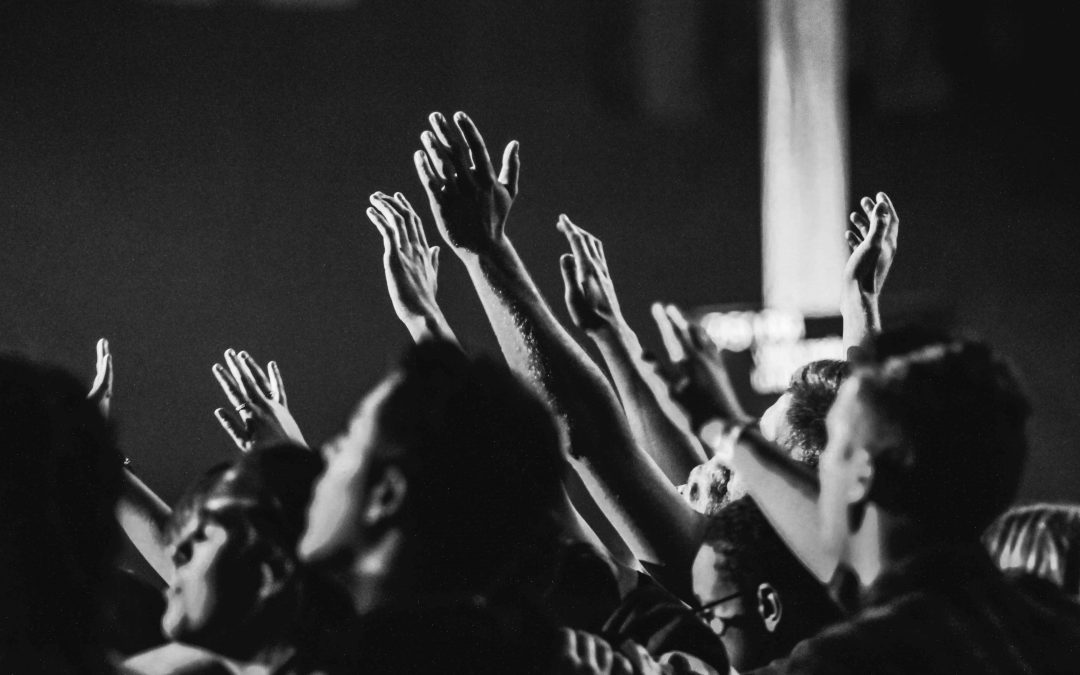
How Do You Worship When You Don’t Like The Music?
How do you worship when you don’t like the worship music? Is it too loud? Is the theology weird? Here are four steps to help you worship God even when you don’t like the music.

Happy Holidays: Who Is The Real Enemy Of Christmas?
Happy Holidays has become a demonized phrase among evangelicals. But what or who is the true enemy of Christmas? Is it really Happy Holidays?
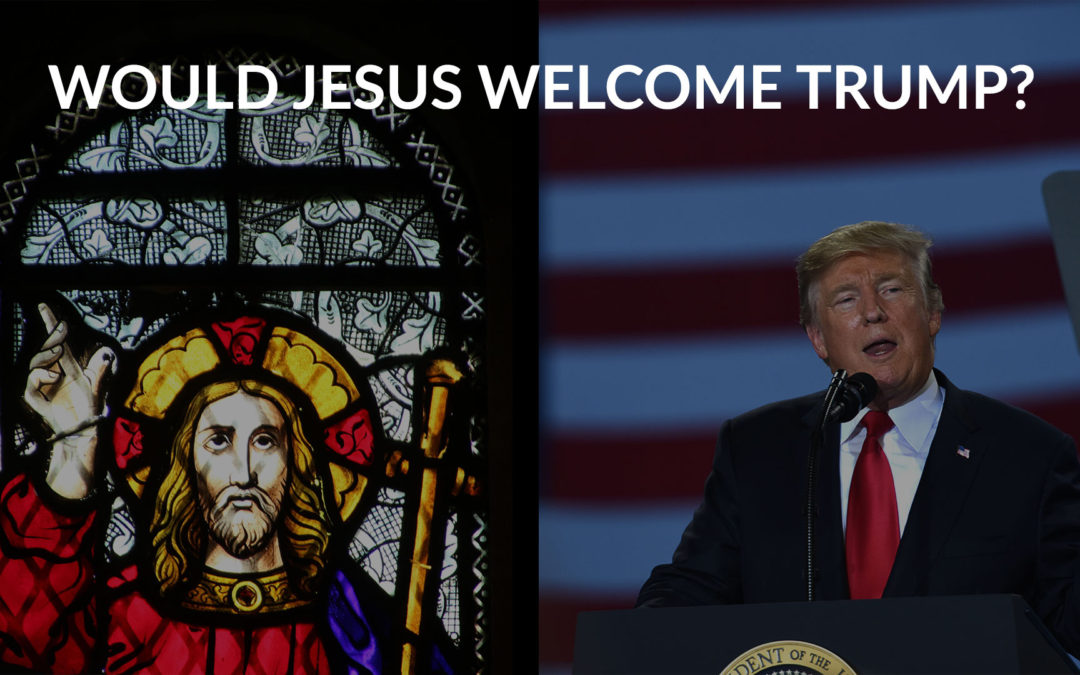
Would Jesus Welcome Trump?
If Jesus lived today would he welcome the most controversial President of the United States? Would Jesus welcome President Trump to his house?
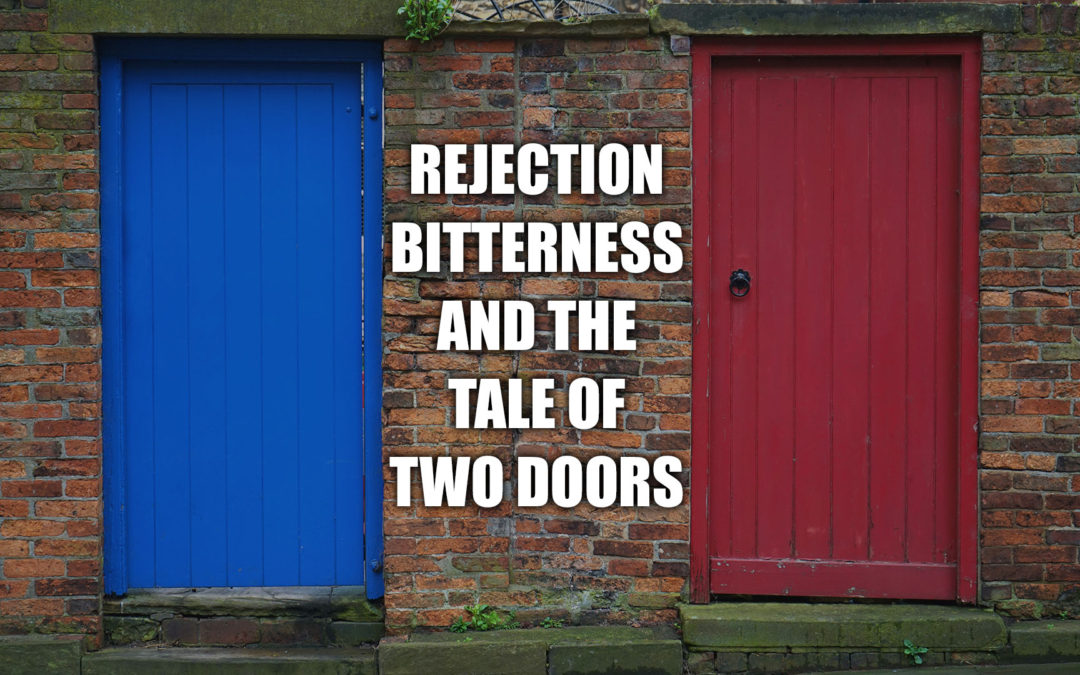
Rejection, Bitterness, And The Tale Of Two Doors
It's been a year this week since two doors had opened for a new job. After a year of unemployment, mental breakdowns, and more rejection than I ever could have anticipated, things were finally starting to look up. Not only was I training for a security job, I also had...
Jesus In Sukkot

Jesus In Sukkot
There are two seasons in Israel. The summer months are called the “Dry Season” and winter is called the “Rainy Season.” Spring is very short-lived while Fall don’t really exist. And right on the very end of the dry season towards the beginning of the New Year and Rainy Season, you have Sukkot or the “Feast of Tabernacles/Booths.” Unlike the somber atmosphere of Yom Kippur, Sukkot is a time to celebrate and pray for God to provide a good rainy season. While many in America dread a rainy season, those in the Middle East pray earnestly for rain. Fresh water is much harder to come by in those regions. This is incredibly important moving forward as we find Jesus in Sukkot and fulfilling this festival.
Sukkot Then
What are the origins of sukkot and what in the world is it? This is the third of the major Jewish Festivals in the fall and it comes 5 days after Yom Kippur and lasts for 7 days and has two mandatory sabbaths at the beginning and end. Let’s look at Leviticus 23:33-44:
The LORD said to Moses, “Say to the Israelites: ‘On the fifteenth day of the seventh month the LORD’s Festival of Tabernacles begins, and it lasts for seven days. The first day is a sacred assembly; do no regular work. For seven days present food offerings to the LORD, and on the eighth day hold a sacred assembly and present a food offering to the LORD. It is the closing special assembly; do no regular work.
“ ‘So beginning with the fifteenth day of the seventh month, after you have gathered the crops of the land, celebrate the festival to the LORD for seven days; the first day is a day of sabbath rest, and the eighth day also is a day of sabbath rest. On the first day you are to take branches from luxuriant trees—from palms, willows and other leafy trees—and rejoice before the LORD your God for seven days. Celebrate this as a festival to the LORD for seven days each year. This is to be a lasting ordinance for the generations to come; celebrate it in the seventh month. Live in temporary shelters for seven days: All native-born Israelites are to live in such shelters so your descendants will know that I had the Israelites live in temporary shelters when I brought them out of Egypt. I am the LORD your God.’ ”
So Moses announced to the Israelites the appointed festivals of the LORD.
Sukkot is just one of the commandments that were given to the Israelites during their time in the wilderness. God, however, knew that they would eventually settle in the Promised Land and things would change. He knew that after generations had been living there, they would forget what He had done for them by releasing them from the bonds of Egypt. Every single festival was established by God to remember what the Lord has done for Israel. In Sukkot, there are multiple facets to remembering God.
Sabbath
First, Sukkot gives the Israelites not just one but two sabbaths which are two extra days off. God was very intentional about making sure his people understood rest. Not only do they get the mandatory weekly Sabbaths but they also get two extra days out of this festival to rest and relax. In doing so, this should cause Israel to praise and worship God.
Offerings
Secondly, Sukkot was set up to give offerings to the Lord. As God provided for the Israelites in the wilderness He was also to be their provider in the Promised land. The offerings are a tangible way of remembering 1) that God is the provider and 2) that in obedience to God’s commandments they would be taken care of (Leviticus 26-27)
Sukkah
Sukkot is the Hebrew plural form of Sukkah. A sukkah is a tent that is made with different types of branches. Of course, over time, different traditions occurred that expounded on how to do observe and build the Sukkot. We aren’t going to dive into all those things here but want to briefly discuss the purpose. The Sukkot were to be built to remind the Israelites that they were once aliens in a foreign land and completely dependent on God for their provision. Not only did they exist in tents during that season of time but God also dwelt in a tent known as the Tabernacle. Even today, these Sukkot are built and people usually eat most of their meals in them and some sleep in them. All of the kosher restaurants will put up Sukkahs so people can eat underneath them. It’s a really fun experience to be in Israel during Sukkot.
Water Drawing
When the Israelites were in the Promised Land and had established themselves in Jerusalem, a secondary element of Sukkot emerged called Simchat Beit HaShoevah. This festival was a water-drawing festival that occurred and still occurs today and can be traced to Isaiah 12:3 “With joy shall you draw water out of the wells of salvation.” In those days they would draw water each day of Sukkot from the Siloam Pool which is the main water source in Jerusalem. Like we mentioned above, Sukkot sits at the beginning of the Rainy Season and is essentially a ritual to God for a good season for the crops.
When you read through John you see Jesus take part in this festival:
”On the last and greatest day of the festival, Jesus stood and said in a loud voice, “Let anyone who is thirsty come to me and drink. Whoever believes in me, as Scripture has said, rivers of living water will flow from within them.” – John 7:37-38
Jesus In Sukkot
The most important aspect that Jesus fulfills is the building of sukkot. We can see a clear analogy of sukkot linked to bodies. Jesus fulfills Sukkot by coming to earth in human form as 100% God and 100% human. God tabernacled among us through Jesus. Secondly, as Paul says, our bodies are temples of the Holy Spirit (1 Cor. 6:19). Those who follow Christ are like the Israelites who are in a foreign land (John 18:36). Jesus was very intentional with His words at the Festival of Tabernacles in John 7. John commentates Jesus’ words and says, “By this, he meant the Spirit, whom those who believed in him were later to receive.” So Jesus fulfills Sukkot by being God in a human tabernacle and provides us with “living water (the Holy Spirit)” that will guide us through the wilderness of life until we go Home.
Sukkot will start on Friday, October 2nd and run through Friday, October 9th.
Leave A Comment
I’d love to hear your thoughts on this article! Please remember to be kind and respectful. If you didn’t like something, I always welcome constructive criticism. However, any form of hatred, bullying, or racism will not be tolerated.

About The Author
Justin Boothby is a lifelong student who loves to travel, film, write, design websites, and life coach. Most importantly he loves to Pastor in all different kinds of ministry settings. He’s also an avid pizza lover, metalcore listener, and shot glass collector.
Recent Blog Posts

How Do You Worship When You Don’t Like The Music?
How do you worship when you don’t like the worship music? Is it too loud? Is the theology weird? Here are four steps to help you worship God even when you don’t like the music.

Happy Holidays: Who Is The Real Enemy Of Christmas?
Happy Holidays has become a demonized phrase among evangelicals. But what or who is the true enemy of Christmas? Is it really Happy Holidays?

Would Jesus Welcome Trump?
If Jesus lived today would he welcome the most controversial President of the United States? Would Jesus welcome President Trump to his house?

Rejection, Bitterness, And The Tale Of Two Doors
It's been a year this week since two doors had opened for a new job. After a year of unemployment, mental breakdowns, and more rejection than I ever could have anticipated, things were finally starting to look up. Not only was I training for a security job, I also had...
About The Author
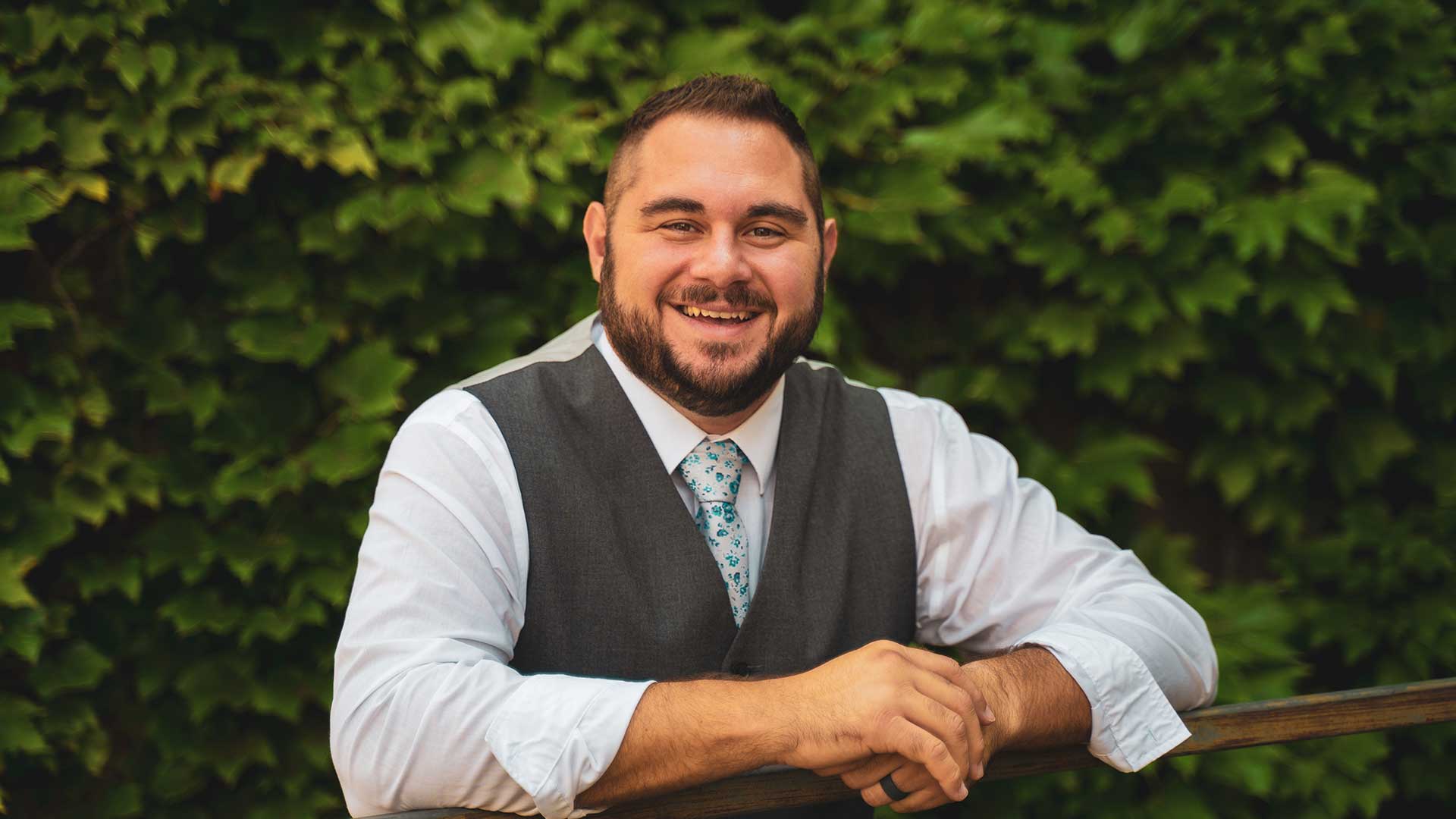
Justin is a lifelong student who loves to speak, travel, film, write, and coach. He has a goal of empowering others to grow closer to Jesus in practical and unique ways. After acquiring two degrees in Practical Theology and then studying in Israel for two years, Justin has a passion to help people read the Bible with a deeper appreciation in its original, ancient context.
M.A. Hebrew University of Jerusalem
M.Div. Regent University
B.S. Southeastern University
